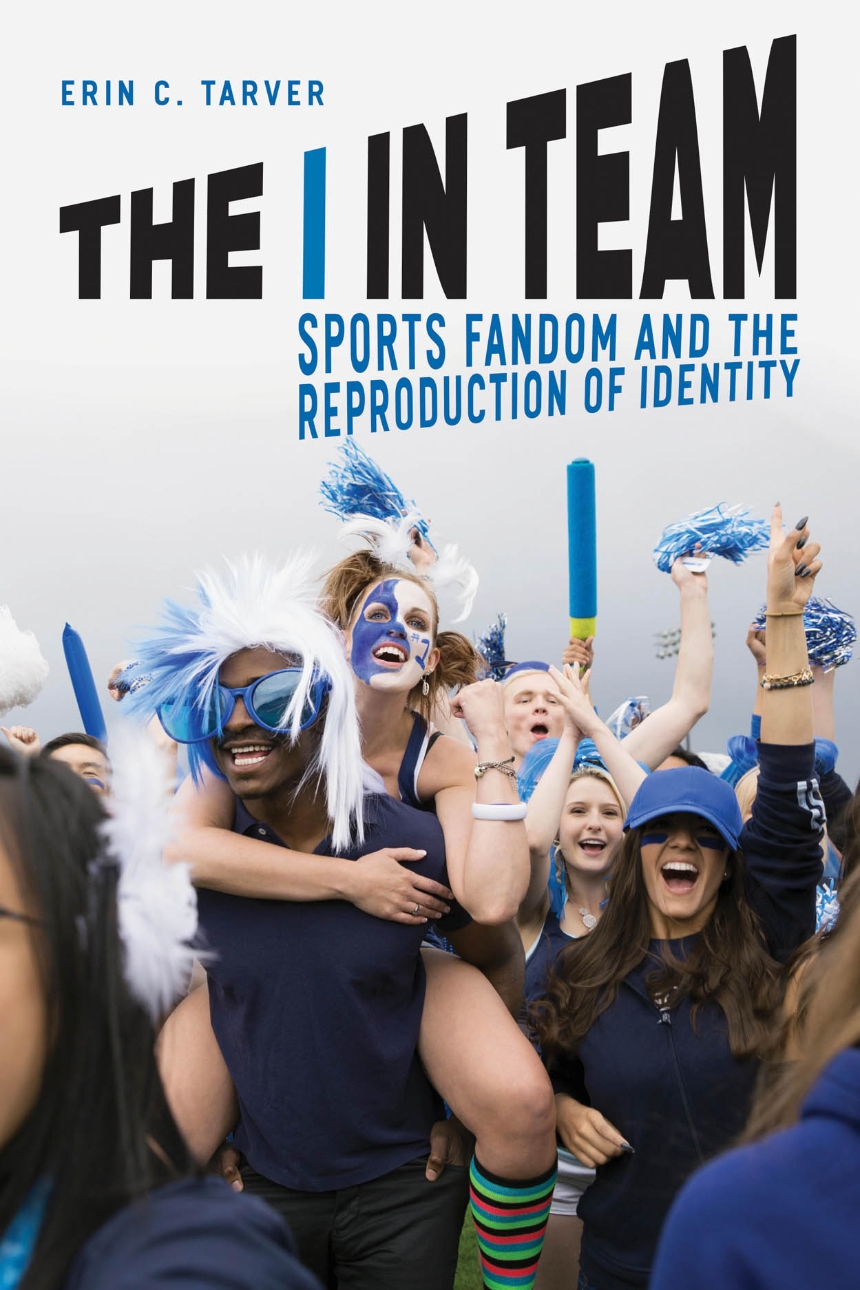The I in Team
Sports Fandom and the Reproduction of Identity
There is one sound that will always be loudest in sports. It isn’t the squeak of sneakers or the crunch of helmets; it isn’t the grunts or even the stadium music. It’s the deafening roar of sports fans. For those few among us on the outside, sports fandom—with its war paint and pennants, its pricey cable TV packages and esoteric stats reeled off like code—looks highly irrational, entertainment gone overboard. But as Erin C. Tarver demonstrates in this book, sports fandom has become extraordinarily important to our psyche, a matter of the very essence of who we are.
Why in the world, Tarver asks, would anyone care about how well a total stranger can throw a ball, or hit one with a bat, or toss one through a hoop? Because such activities and the massive public events that surround them form some of the most meaningful ritual identity practices we have today. They are a primary way we—as individuals and a collective—decide both who we are who we are not. And as such, they are also one of the key ways that various social structures—such as race and gender hierarchies—are sustained, lending a dark side to the joys of being a sports fan. Drawing on everything from philosophy to sociology to sports history, she offers a profound exploration of the significance of sports in contemporary life, showing us just how high the stakes of the game are.
Why in the world, Tarver asks, would anyone care about how well a total stranger can throw a ball, or hit one with a bat, or toss one through a hoop? Because such activities and the massive public events that surround them form some of the most meaningful ritual identity practices we have today. They are a primary way we—as individuals and a collective—decide both who we are who we are not. And as such, they are also one of the key ways that various social structures—such as race and gender hierarchies—are sustained, lending a dark side to the joys of being a sports fan. Drawing on everything from philosophy to sociology to sports history, she offers a profound exploration of the significance of sports in contemporary life, showing us just how high the stakes of the game are.
256 pages | 3 tables | 6 x 9 | © 2017
Philosophy: General Philosophy, Philosophy of Society
Sociology: Collective Behavior, Mass Communication
Reviews
Table of Contents
Introduction: Sports Fandom and Identity
1 Who Is a Fan?
2 Sports Fandom as Practice of Subjectivization
3 Putting the “We” in “We’re Number One”: Mascots, Team, and Community Identity
4 Hero or Mascot? Fantasies of Identification
5 “Honey Badger Takes What He Wants”: Southern Collegiate Athletics and the Mascotting of Black Masculinity
6 From Mascot to Danger
7 Women on the Margins of Sports Fandom
Acknowledgments
Notes
References
Index
1 Who Is a Fan?
2 Sports Fandom as Practice of Subjectivization
3 Putting the “We” in “We’re Number One”: Mascots, Team, and Community Identity
4 Hero or Mascot? Fantasies of Identification
5 “Honey Badger Takes What He Wants”: Southern Collegiate Athletics and the Mascotting of Black Masculinity
6 From Mascot to Danger
7 Women on the Margins of Sports Fandom
Acknowledgments
Notes
References
Index
